
20th Annual Scientific Sessions:
Cardiovascular disease in the metabolic syndrome: Linking metabolism, inflammation and heart disease
Graz, Austria 25-28 June 2023



 Dr. Alcaide is an Associate Professor of Immunology, the Director of the Immunology Graduate program, and the Kenneth and JoAnn G. Wellner Professor at Tufts University School of Medicine, Boston, MA. She received her PhD, cum laude, in Molecular Biology and Immunology from Universidad Autonoma of Madrid, Spain. As a recipient of a Fulbright postdoctoral fellowship, Dr. Alcaide trained in vascular biology at the Department of Pathology, Brigham and Women’s hospital. Dr. Alcaide was appointed to Instructor of Pathology at Harvard Medical School, where she successfully competed for a “Pathway to Independence NIH K99/R00” award.
Dr. Alcaide is an Associate Professor of Immunology, the Director of the Immunology Graduate program, and the Kenneth and JoAnn G. Wellner Professor at Tufts University School of Medicine, Boston, MA. She received her PhD, cum laude, in Molecular Biology and Immunology from Universidad Autonoma of Madrid, Spain. As a recipient of a Fulbright postdoctoral fellowship, Dr. Alcaide trained in vascular biology at the Department of Pathology, Brigham and Women’s hospital. Dr. Alcaide was appointed to Instructor of Pathology at Harvard Medical School, where she successfully competed for a “Pathway to Independence NIH K99/R00” award.
Dr. Alcaide’s research focuses in understanding the role of T lymphocytes in heart inflammation and their impact in the progression of heart failure, with the goal of unveiling new pathways that can potentially be targeted in therapeutic useful ways. Dr. Alcaide’s impactful work in the growing field of cardio-immunology has been published in prestigious journals such as Circulation, the Journal of Experimental Medicine and Nature Cardiovascular Research and resulted in continuously funded grants from the NIH and private foundations. Dr. Alcaide has received several awards, including the Cotran Early Career Investigator, awarded to early career investigators with demonstrated excellence in Pathology, the International Society for Heart Research Mid Career Research and Scholarship Award, and was named Fellow of the American Heart Association. Dr. Alcaide serves as Associate Editor of the Journal of Molecular and Cellular Cardiology, in the board of consulting editors of the Journal of Clinical Investigation insight, and in the Circulation Research and FASEB Journal Editorial Boards.
 Dr. Alcaide is an Associate Professor of Immunology, the Director of the Immunology Graduate program, and the Kenneth and JoAnn G. Wellner Professor at Tufts University School of Medicine, Boston, MA. She received her PhD, cum laude, in Molecular Biology and Immunology from Universidad Autonoma of Madrid, Spain. As a recipient of a Fulbright postdoctoral fellowship, Dr. Alcaide trained in vascular biology at the Department of Pathology, Brigham and Women’s hospital. Dr. Alcaide was appointed to Instructor of Pathology at Harvard Medical School, where she successfully competed for a “Pathway to Independence NIH K99/R00” award.
Dr. Alcaide is an Associate Professor of Immunology, the Director of the Immunology Graduate program, and the Kenneth and JoAnn G. Wellner Professor at Tufts University School of Medicine, Boston, MA. She received her PhD, cum laude, in Molecular Biology and Immunology from Universidad Autonoma of Madrid, Spain. As a recipient of a Fulbright postdoctoral fellowship, Dr. Alcaide trained in vascular biology at the Department of Pathology, Brigham and Women’s hospital. Dr. Alcaide was appointed to Instructor of Pathology at Harvard Medical School, where she successfully competed for a “Pathway to Independence NIH K99/R00” award.
Dr. Alcaide’s research focuses in understanding the role of T lymphocytes in heart inflammation and their impact in the progression of heart failure, with the goal of unveiling new pathways that can potentially be targeted in therapeutic useful ways. Dr. Alcaide’s impactful work in the growing field of cardio-immunology has been published in prestigious journals such as Circulation, the Journal of Experimental Medicine and Nature Cardiovascular Research and resulted in continuously funded grants from the NIH and private foundations. Dr. Alcaide has received several awards, including the Cotran Early Career Investigator, awarded to early career investigators with demonstrated excellence in Pathology, the International Society for Heart Research Mid Career Research and Scholarship Award, and was named Fellow of the American Heart Association. Dr. Alcaide serves as Associate Editor of the Journal of Molecular and Cellular Cardiology, in the board of consulting editors of the Journal of Clinical Investigation insight, and in the Circulation Research and FASEB Journal Editorial Boards.
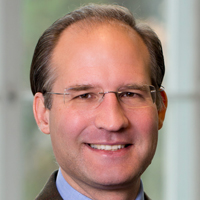 Christoph J. Binder (born 1973) received his MD degree from the University of Vienna, Austria, in 1997 and his PhD degree in Molecular Pathology from the University of California San Diego (UCSD), USA, in 2002. Following postdoctoral training at the Department of Medicine of UCSD, he established his own research group at the Medical University of Vienna in 2005. In 2009 he was appointed Full Professor of Atherosclerosis Research at the Medical University of Vienna. He is a specialist in Laboratory Medicine and currently Deputy Head of the Department of Laboratory Medicine at the Medical University of Vienna. He is also PI of the Austrian Familial Hypercholesterolemia Registry. Since 2014 Christoph Binder acts as a referee and board member of the Austrian Science Fund. From 2016 until 2019 he was a member of the Executive Committee and since 2021 he is Vice President of the European Atherosclerosis Society. Christoph Binder’s research interests span vascular biology, lipid oxidation, extracellular vesicles, and immunity. His group is investigating immune mechanisms of atherosclerosis with a special focus on the role of innate and humoral immunity and how this can be exploited for the treatment of cardiovascular disease. Major findings include the identification of the atheroprotective role and mechanisms of several cytokines as well as of antigen-specific natural IgM antibodies. Christoph Binder has authored >200 original and review papers in important international journals, including Nature Medicine and Nature. He is Co-Editor of Atherosclerosis and Section Editor of Thrombosis & Haemostasis.
Christoph J. Binder (born 1973) received his MD degree from the University of Vienna, Austria, in 1997 and his PhD degree in Molecular Pathology from the University of California San Diego (UCSD), USA, in 2002. Following postdoctoral training at the Department of Medicine of UCSD, he established his own research group at the Medical University of Vienna in 2005. In 2009 he was appointed Full Professor of Atherosclerosis Research at the Medical University of Vienna. He is a specialist in Laboratory Medicine and currently Deputy Head of the Department of Laboratory Medicine at the Medical University of Vienna. He is also PI of the Austrian Familial Hypercholesterolemia Registry. Since 2014 Christoph Binder acts as a referee and board member of the Austrian Science Fund. From 2016 until 2019 he was a member of the Executive Committee and since 2021 he is Vice President of the European Atherosclerosis Society. Christoph Binder’s research interests span vascular biology, lipid oxidation, extracellular vesicles, and immunity. His group is investigating immune mechanisms of atherosclerosis with a special focus on the role of innate and humoral immunity and how this can be exploited for the treatment of cardiovascular disease. Major findings include the identification of the atheroprotective role and mechanisms of several cytokines as well as of antigen-specific natural IgM antibodies. Christoph Binder has authored >200 original and review papers in important international journals, including Nature Medicine and Nature. He is Co-Editor of Atherosclerosis and Section Editor of Thrombosis & Haemostasis.
 Christoph J. Binder (born 1973) received his MD degree from the University of Vienna, Austria, in 1997 and his PhD degree in Molecular Pathology from the University of California San Diego (UCSD), USA, in 2002. Following postdoctoral training at the Department of Medicine of UCSD, he established his own research group at the Medical University of Vienna in 2005. In 2009 he was appointed Full Professor of Atherosclerosis Research at the Medical University of Vienna. He is a specialist in Laboratory Medicine and currently Deputy Head of the Department of Laboratory Medicine at the Medical University of Vienna. He is also PI of the Austrian Familial Hypercholesterolemia Registry. Since 2014 Christoph Binder acts as a referee and board member of the Austrian Science Fund. From 2016 until 2019 he was a member of the Executive Committee and since 2021 he is Vice President of the European Atherosclerosis Society. Christoph Binder’s research interests span vascular biology, lipid oxidation, extracellular vesicles, and immunity. His group is investigating immune mechanisms of atherosclerosis with a special focus on the role of innate and humoral immunity and how this can be exploited for the treatment of cardiovascular disease. Major findings include the identification of the atheroprotective role and mechanisms of several cytokines as well as of antigen-specific natural IgM antibodies. Christoph Binder has authored >200 original and review papers in important international journals, including Nature Medicine and Nature. He is Co-Editor of Atherosclerosis and Section Editor of Thrombosis & Haemostasis.
Christoph J. Binder (born 1973) received his MD degree from the University of Vienna, Austria, in 1997 and his PhD degree in Molecular Pathology from the University of California San Diego (UCSD), USA, in 2002. Following postdoctoral training at the Department of Medicine of UCSD, he established his own research group at the Medical University of Vienna in 2005. In 2009 he was appointed Full Professor of Atherosclerosis Research at the Medical University of Vienna. He is a specialist in Laboratory Medicine and currently Deputy Head of the Department of Laboratory Medicine at the Medical University of Vienna. He is also PI of the Austrian Familial Hypercholesterolemia Registry. Since 2014 Christoph Binder acts as a referee and board member of the Austrian Science Fund. From 2016 until 2019 he was a member of the Executive Committee and since 2021 he is Vice President of the European Atherosclerosis Society. Christoph Binder’s research interests span vascular biology, lipid oxidation, extracellular vesicles, and immunity. His group is investigating immune mechanisms of atherosclerosis with a special focus on the role of innate and humoral immunity and how this can be exploited for the treatment of cardiovascular disease. Major findings include the identification of the atheroprotective role and mechanisms of several cytokines as well as of antigen-specific natural IgM antibodies. Christoph Binder has authored >200 original and review papers in important international journals, including Nature Medicine and Nature. He is Co-Editor of Atherosclerosis and Section Editor of Thrombosis & Haemostasis.
 Dr. Nikole Byrne is a Postdoctoral Fellow in the group of Dr. Heiko Bugger, MD PhD, in the Division of Cardiology at the Medical University of Graz, Austria. She completed her PhD in the Department of Pediatrics at the University of Alberta, Edmonton, Canada under the supervision of Dr. Jason Dyck, where she focused largely on studying cardiac energy metabolism in heart failure using an experimental mouse model of pressure-overload induced cardiac hypertrophy and dysfunction. Particularly, her work tested the therapeutic potential of the novel SGLT2 inhibitors in heart failure in the absence of diabetes and the molecular mechanisms involved. She is currently exploring NAD+ metabolism and the role of mitochondrial Sirtuins in several cardiovascular diseases, including heart failure, myocardial infarction, diabetic cardiomyopathy and atherosclerosis. These areas of research employ in vivo, ex vivo and in vitro experiments and methodologies including Omics studies (transcriptomics, proteomics, metabolomics, lipidomics), molecular biology techniques, and various histological analyses. Together, Dr. Byrne’s research focuses largely on how alterations in energy metabolism and oxidative stress contribute to cardiovascular diseases.
Dr. Nikole Byrne is a Postdoctoral Fellow in the group of Dr. Heiko Bugger, MD PhD, in the Division of Cardiology at the Medical University of Graz, Austria. She completed her PhD in the Department of Pediatrics at the University of Alberta, Edmonton, Canada under the supervision of Dr. Jason Dyck, where she focused largely on studying cardiac energy metabolism in heart failure using an experimental mouse model of pressure-overload induced cardiac hypertrophy and dysfunction. Particularly, her work tested the therapeutic potential of the novel SGLT2 inhibitors in heart failure in the absence of diabetes and the molecular mechanisms involved. She is currently exploring NAD+ metabolism and the role of mitochondrial Sirtuins in several cardiovascular diseases, including heart failure, myocardial infarction, diabetic cardiomyopathy and atherosclerosis. These areas of research employ in vivo, ex vivo and in vitro experiments and methodologies including Omics studies (transcriptomics, proteomics, metabolomics, lipidomics), molecular biology techniques, and various histological analyses. Together, Dr. Byrne’s research focuses largely on how alterations in energy metabolism and oxidative stress contribute to cardiovascular diseases.
 Dr. Nikole Byrne is a Postdoctoral Fellow in the group of Dr. Heiko Bugger, MD PhD, in the Division of Cardiology at the Medical University of Graz, Austria. She completed her PhD in the Department of Pediatrics at the University of Alberta, Edmonton, Canada under the supervision of Dr. Jason Dyck, where she focused largely on studying cardiac energy metabolism in heart failure using an experimental mouse model of pressure-overload induced cardiac hypertrophy and dysfunction. Particularly, her work tested the therapeutic potential of the novel SGLT2 inhibitors in heart failure in the absence of diabetes and the molecular mechanisms involved. She is currently exploring NAD+ metabolism and the role of mitochondrial Sirtuins in several cardiovascular diseases, including heart failure, myocardial infarction, diabetic cardiomyopathy and atherosclerosis. These areas of research employ in vivo, ex vivo and in vitro experiments and methodologies including Omics studies (transcriptomics, proteomics, metabolomics, lipidomics), molecular biology techniques, and various histological analyses. Together, Dr. Byrne’s research focuses largely on how alterations in energy metabolism and oxidative stress contribute to cardiovascular diseases.
Dr. Nikole Byrne is a Postdoctoral Fellow in the group of Dr. Heiko Bugger, MD PhD, in the Division of Cardiology at the Medical University of Graz, Austria. She completed her PhD in the Department of Pediatrics at the University of Alberta, Edmonton, Canada under the supervision of Dr. Jason Dyck, where she focused largely on studying cardiac energy metabolism in heart failure using an experimental mouse model of pressure-overload induced cardiac hypertrophy and dysfunction. Particularly, her work tested the therapeutic potential of the novel SGLT2 inhibitors in heart failure in the absence of diabetes and the molecular mechanisms involved. She is currently exploring NAD+ metabolism and the role of mitochondrial Sirtuins in several cardiovascular diseases, including heart failure, myocardial infarction, diabetic cardiomyopathy and atherosclerosis. These areas of research employ in vivo, ex vivo and in vitro experiments and methodologies including Omics studies (transcriptomics, proteomics, metabolomics, lipidomics), molecular biology techniques, and various histological analyses. Together, Dr. Byrne’s research focuses largely on how alterations in energy metabolism and oxidative stress contribute to cardiovascular diseases.
 Prof de Haan is Head of the Cardiovascular Inflammation and Redox Biology Laboratory at the Baker Heart and Diabetes Institute, Melbourne, Australia. She holds a PhD from Monash Uni, Australia, with adjunct appointments at Swinburne, La Trobe, Monash and Melbourne University. Prof de Haan is President of the Australian Atherosclerosis Society (2023-2025) and an appointed member of the Australian Cardiovascular Alliance (ACvA) Drug Discovery and Translation Flagship.
Prof de Haan is Head of the Cardiovascular Inflammation and Redox Biology Laboratory at the Baker Heart and Diabetes Institute, Melbourne, Australia. She holds a PhD from Monash Uni, Australia, with adjunct appointments at Swinburne, La Trobe, Monash and Melbourne University. Prof de Haan is President of the Australian Atherosclerosis Society (2023-2025) and an appointed member of the Australian Cardiovascular Alliance (ACvA) Drug Discovery and Translation Flagship.
Prof de Haan is recognized as a leader in the field of redox biology. She has developed several novel redox-based therapeutic strategies for the protection against diabetic end-organ damage, particularly for the diabetic eye, kidneys and the vasculature. This stems from her understanding of the oxidative and pro-inflammatory mechanisms that drive diabetic micro- and macrovascular complications. More recently, her interests have extended to the design of novel stent coatings to limit diabetes-associated in-stent restenosis. Her research output includes 90+ publications (~5000 citations, H-index: 41) in top-ranked journals such as Circulation and Diabetes. Her work has been supported by competitive grants from the Australian government (NHMRC), the Australian Heart Foundation, Diabetes Australia, and Industry (Bayer, Reata Pharma).
In today’s presentation Prof de Haan will overview various novel redox and anti-inflammatory approaches to improve diabetes-driven cardiovascular diseases in preclinical mouse models.
 Prof de Haan is Head of the Cardiovascular Inflammation and Redox Biology Laboratory at the Baker Heart and Diabetes Institute, Melbourne, Australia. She holds a PhD from Monash Uni, Australia, with adjunct appointments at Swinburne, La Trobe, Monash and Melbourne University. Prof de Haan is President of the Australian Atherosclerosis Society (2023-2025) and an appointed member of the Australian Cardiovascular Alliance (ACvA) Drug Discovery and Translation Flagship.
Prof de Haan is Head of the Cardiovascular Inflammation and Redox Biology Laboratory at the Baker Heart and Diabetes Institute, Melbourne, Australia. She holds a PhD from Monash Uni, Australia, with adjunct appointments at Swinburne, La Trobe, Monash and Melbourne University. Prof de Haan is President of the Australian Atherosclerosis Society (2023-2025) and an appointed member of the Australian Cardiovascular Alliance (ACvA) Drug Discovery and Translation Flagship.
Prof de Haan is recognized as a leader in the field of redox biology. She has developed several novel redox-based therapeutic strategies for the protection against diabetic end-organ damage, particularly for the diabetic eye, kidneys and the vasculature. This stems from her understanding of the oxidative and pro-inflammatory mechanisms that drive diabetic micro- and macrovascular complications. More recently, her interests have extended to the design of novel stent coatings to limit diabetes-associated in-stent restenosis. Her research output includes 90+ publications (~5000 citations, H-index: 41) in top-ranked journals such as Circulation and Diabetes. Her work has been supported by competitive grants from the Australian government (NHMRC), the Australian Heart Foundation, Diabetes Australia, and Industry (Bayer, Reata Pharma).
In today’s presentation Prof de Haan will overview various novel redox and anti-inflammatory approaches to improve diabetes-driven cardiovascular diseases in preclinical mouse models.
 Christine Des Rosiers is Director of the Metabolomic Laboratory/Platform at the Montreal Heart Institute (MHI) and Honorary Professor after being Full Professor since 1989 in the Department of Nutrition at the Université de Montréal in Canada. She has >30 years of research experience exploring the role of metabolic alterations in heart diseases using stable-isotope-based mass spectrometry (MS) methods. After joining the MHI in 2004, she moved from a predominantly basic research to a more clinically-oriented research focusing on the use of metabolomics for biomarker discovery as part of multidisciplinary precision medicine projects. For this, she led the validation of MS-based methods to profile in clinical samples metabolites relevant to the pathophysiological mechanisms, which included an untargeted discovery-based lipidomic workflow (>1,000 signals or >500 lipids from all classes). The application of untargeted lipidomics to plasma samples in human cohorts has revealed novel perspectives on the molecular mechanisms underlying these diseases, on patient classification and response to therapy. These projects included patients with mitochondrial disorders with cardiac manifestations such as ?-thalassemia and Friedreich ataxia, and with heart failure with both reduced and preserved ejection fraction. She has published >150 articles and book chapters and has supervised >100 trainees at all levels. Illustrating her dedication to heart research and training, she has been a founding and board member (2002-2008) and President (2015-2018) of the SHVM.
Christine Des Rosiers is Director of the Metabolomic Laboratory/Platform at the Montreal Heart Institute (MHI) and Honorary Professor after being Full Professor since 1989 in the Department of Nutrition at the Université de Montréal in Canada. She has >30 years of research experience exploring the role of metabolic alterations in heart diseases using stable-isotope-based mass spectrometry (MS) methods. After joining the MHI in 2004, she moved from a predominantly basic research to a more clinically-oriented research focusing on the use of metabolomics for biomarker discovery as part of multidisciplinary precision medicine projects. For this, she led the validation of MS-based methods to profile in clinical samples metabolites relevant to the pathophysiological mechanisms, which included an untargeted discovery-based lipidomic workflow (>1,000 signals or >500 lipids from all classes). The application of untargeted lipidomics to plasma samples in human cohorts has revealed novel perspectives on the molecular mechanisms underlying these diseases, on patient classification and response to therapy. These projects included patients with mitochondrial disorders with cardiac manifestations such as ?-thalassemia and Friedreich ataxia, and with heart failure with both reduced and preserved ejection fraction. She has published >150 articles and book chapters and has supervised >100 trainees at all levels. Illustrating her dedication to heart research and training, she has been a founding and board member (2002-2008) and President (2015-2018) of the SHVM.
 Christine Des Rosiers is Director of the Metabolomic Laboratory/Platform at the Montreal Heart Institute (MHI) and Honorary Professor after being Full Professor since 1989 in the Department of Nutrition at the Université de Montréal in Canada. She has >30 years of research experience exploring the role of metabolic alterations in heart diseases using stable-isotope-based mass spectrometry (MS) methods. After joining the MHI in 2004, she moved from a predominantly basic research to a more clinically-oriented research focusing on the use of metabolomics for biomarker discovery as part of multidisciplinary precision medicine projects. For this, she led the validation of MS-based methods to profile in clinical samples metabolites relevant to the pathophysiological mechanisms, which included an untargeted discovery-based lipidomic workflow (>1,000 signals or >500 lipids from all classes). The application of untargeted lipidomics to plasma samples in human cohorts has revealed novel perspectives on the molecular mechanisms underlying these diseases, on patient classification and response to therapy. These projects included patients with mitochondrial disorders with cardiac manifestations such as ?-thalassemia and Friedreich ataxia, and with heart failure with both reduced and preserved ejection fraction. She has published >150 articles and book chapters and has supervised >100 trainees at all levels. Illustrating her dedication to heart research and training, she has been a founding and board member (2002-2008) and President (2015-2018) of the SHVM.
Christine Des Rosiers is Director of the Metabolomic Laboratory/Platform at the Montreal Heart Institute (MHI) and Honorary Professor after being Full Professor since 1989 in the Department of Nutrition at the Université de Montréal in Canada. She has >30 years of research experience exploring the role of metabolic alterations in heart diseases using stable-isotope-based mass spectrometry (MS) methods. After joining the MHI in 2004, she moved from a predominantly basic research to a more clinically-oriented research focusing on the use of metabolomics for biomarker discovery as part of multidisciplinary precision medicine projects. For this, she led the validation of MS-based methods to profile in clinical samples metabolites relevant to the pathophysiological mechanisms, which included an untargeted discovery-based lipidomic workflow (>1,000 signals or >500 lipids from all classes). The application of untargeted lipidomics to plasma samples in human cohorts has revealed novel perspectives on the molecular mechanisms underlying these diseases, on patient classification and response to therapy. These projects included patients with mitochondrial disorders with cardiac manifestations such as ?-thalassemia and Friedreich ataxia, and with heart failure with both reduced and preserved ejection fraction. She has published >150 articles and book chapters and has supervised >100 trainees at all levels. Illustrating her dedication to heart research and training, she has been a founding and board member (2002-2008) and President (2015-2018) of the SHVM.
 Dr. Jingyuan Fu is a professor of systems medicine in the University Medical Centre Groningen, the Netherlands, with a particular focus on integrative genomics and host-microbe interactions in complex diseases. She obtained a BSc in Biochemistry, a MSc in Biotechnology and Bioinformatics (cum laude), and a PhD in systems genetics (cum laude). Via this route she developed her research line on systems genetics in complex traits and became an expert in integrative genomics and systems biology. Her research aims to acquire a greater knowledge of how the human genome and the gut microbiome interact with each other and affect human health, in order to create better methods for disease prediction, prevention, and treatment. To accomplish this, her study combines with large-scale genetic and microbial association studies in big groups of individuals with functional studies using advanced bacterial culturing and organ-on-a-chip technologies. She holds ERC-CoG, NWO-VICI and several national consortia grants, and is recognized as an “Highly Cited Researcher” by Web of Science and a laureate of AMMODO Science Award in 2023.
Dr. Jingyuan Fu is a professor of systems medicine in the University Medical Centre Groningen, the Netherlands, with a particular focus on integrative genomics and host-microbe interactions in complex diseases. She obtained a BSc in Biochemistry, a MSc in Biotechnology and Bioinformatics (cum laude), and a PhD in systems genetics (cum laude). Via this route she developed her research line on systems genetics in complex traits and became an expert in integrative genomics and systems biology. Her research aims to acquire a greater knowledge of how the human genome and the gut microbiome interact with each other and affect human health, in order to create better methods for disease prediction, prevention, and treatment. To accomplish this, her study combines with large-scale genetic and microbial association studies in big groups of individuals with functional studies using advanced bacterial culturing and organ-on-a-chip technologies. She holds ERC-CoG, NWO-VICI and several national consortia grants, and is recognized as an “Highly Cited Researcher” by Web of Science and a laureate of AMMODO Science Award in 2023.
 Dr. Jingyuan Fu is a professor of systems medicine in the University Medical Centre Groningen, the Netherlands, with a particular focus on integrative genomics and host-microbe interactions in complex diseases. She obtained a BSc in Biochemistry, a MSc in Biotechnology and Bioinformatics (cum laude), and a PhD in systems genetics (cum laude). Via this route she developed her research line on systems genetics in complex traits and became an expert in integrative genomics and systems biology. Her research aims to acquire a greater knowledge of how the human genome and the gut microbiome interact with each other and affect human health, in order to create better methods for disease prediction, prevention, and treatment. To accomplish this, her study combines with large-scale genetic and microbial association studies in big groups of individuals with functional studies using advanced bacterial culturing and organ-on-a-chip technologies. She holds ERC-CoG, NWO-VICI and several national consortia grants, and is recognized as an “Highly Cited Researcher” by Web of Science and a laureate of AMMODO Science Award in 2023.
Dr. Jingyuan Fu is a professor of systems medicine in the University Medical Centre Groningen, the Netherlands, with a particular focus on integrative genomics and host-microbe interactions in complex diseases. She obtained a BSc in Biochemistry, a MSc in Biotechnology and Bioinformatics (cum laude), and a PhD in systems genetics (cum laude). Via this route she developed her research line on systems genetics in complex traits and became an expert in integrative genomics and systems biology. Her research aims to acquire a greater knowledge of how the human genome and the gut microbiome interact with each other and affect human health, in order to create better methods for disease prediction, prevention, and treatment. To accomplish this, her study combines with large-scale genetic and microbial association studies in big groups of individuals with functional studies using advanced bacterial culturing and organ-on-a-chip technologies. She holds ERC-CoG, NWO-VICI and several national consortia grants, and is recognized as an “Highly Cited Researcher” by Web of Science and a laureate of AMMODO Science Award in 2023.
 Åsa Gustafsson is a Professor at the University of California San Diego (UCSD) and she is interested in understanding the molecular pathways that regulate the life and death of cardiac myocytes. Activation of cell death pathways is a common occurrence in cardiovascular disease and contributes to the development of heart failure. Specifically, Dr. Gustafsson’s research is focused on elucidating pathways involved in regulating mitochondrial structure, function, and degradation in myocardial cells. She is also interested in alternative mechanisms of mitochondrial quality control in cells. Defects in these pathway leads to accumulation of aberrant mitochondria and loss of myocytes. Dr. Gustafsson joined the Skaggs School of Pharmacy and Pharmaceutical Sciences in October 2009. Prior to coming to UCSD, she was an Assistant Professor at San Diego State University. She received her Ph.D. in Biomedical Sciences from the Department of Pharmacology at UCSD in 2001. Her postdoctoral training was done at The Scripps Research Institute in La Jolla with Dr. Roberta Gottlieb. For her contributions to cardiovascular research, she was awarded the ISHR Outstanding Investigator Award in 2014. She is also an elected Fellow of the American Heart Association and a Fellow of the International Society for Heart Research.
Åsa Gustafsson is a Professor at the University of California San Diego (UCSD) and she is interested in understanding the molecular pathways that regulate the life and death of cardiac myocytes. Activation of cell death pathways is a common occurrence in cardiovascular disease and contributes to the development of heart failure. Specifically, Dr. Gustafsson’s research is focused on elucidating pathways involved in regulating mitochondrial structure, function, and degradation in myocardial cells. She is also interested in alternative mechanisms of mitochondrial quality control in cells. Defects in these pathway leads to accumulation of aberrant mitochondria and loss of myocytes. Dr. Gustafsson joined the Skaggs School of Pharmacy and Pharmaceutical Sciences in October 2009. Prior to coming to UCSD, she was an Assistant Professor at San Diego State University. She received her Ph.D. in Biomedical Sciences from the Department of Pharmacology at UCSD in 2001. Her postdoctoral training was done at The Scripps Research Institute in La Jolla with Dr. Roberta Gottlieb. For her contributions to cardiovascular research, she was awarded the ISHR Outstanding Investigator Award in 2014. She is also an elected Fellow of the American Heart Association and a Fellow of the International Society for Heart Research.
 Åsa Gustafsson is a Professor at the University of California San Diego (UCSD) and she is interested in understanding the molecular pathways that regulate the life and death of cardiac myocytes. Activation of cell death pathways is a common occurrence in cardiovascular disease and contributes to the development of heart failure. Specifically, Dr. Gustafsson’s research is focused on elucidating pathways involved in regulating mitochondrial structure, function, and degradation in myocardial cells. She is also interested in alternative mechanisms of mitochondrial quality control in cells. Defects in these pathway leads to accumulation of aberrant mitochondria and loss of myocytes. Dr. Gustafsson joined the Skaggs School of Pharmacy and Pharmaceutical Sciences in October 2009. Prior to coming to UCSD, she was an Assistant Professor at San Diego State University. She received her Ph.D. in Biomedical Sciences from the Department of Pharmacology at UCSD in 2001. Her postdoctoral training was done at The Scripps Research Institute in La Jolla with Dr. Roberta Gottlieb. For her contributions to cardiovascular research, she was awarded the ISHR Outstanding Investigator Award in 2014. She is also an elected Fellow of the American Heart Association and a Fellow of the International Society for Heart Research.
Åsa Gustafsson is a Professor at the University of California San Diego (UCSD) and she is interested in understanding the molecular pathways that regulate the life and death of cardiac myocytes. Activation of cell death pathways is a common occurrence in cardiovascular disease and contributes to the development of heart failure. Specifically, Dr. Gustafsson’s research is focused on elucidating pathways involved in regulating mitochondrial structure, function, and degradation in myocardial cells. She is also interested in alternative mechanisms of mitochondrial quality control in cells. Defects in these pathway leads to accumulation of aberrant mitochondria and loss of myocytes. Dr. Gustafsson joined the Skaggs School of Pharmacy and Pharmaceutical Sciences in October 2009. Prior to coming to UCSD, she was an Assistant Professor at San Diego State University. She received her Ph.D. in Biomedical Sciences from the Department of Pharmacology at UCSD in 2001. Her postdoctoral training was done at The Scripps Research Institute in La Jolla with Dr. Roberta Gottlieb. For her contributions to cardiovascular research, she was awarded the ISHR Outstanding Investigator Award in 2014. She is also an elected Fellow of the American Heart Association and a Fellow of the International Society for Heart Research.
 Guenter Haemmerle studied microbiology in Graz and received his PhD in biochemistry in 2001 at the University of Graz, Austria. Since 2010, Guenter Haemmerle is an Associate Professor at the Institute of Molecular Biosciences, Graz. His research interests are understanding the role of lipid hydrolases in energy catabolism and the development of metabolic disease. His most important scientific contributions encompass the generation and characterization of mutant mouse models lacking or overexpressing neutral lipases (Atgl/PNPLA2, Hsl/LIPE) and co-regulators (Cgi-58/ABHD5, Perilipin 5), which significantly contributed to the understanding of the in vivo role of lipases and co-regulators in energy catabolism and the onset of metabolic disease (h-index: 43). Over the last years, his group aims to understand the metabolic role of Perilipin 5 and Carboxylesterase 2 (Ces2/CES2) proteins in cardiac and liver lipid metabolism, respectively.
Guenter Haemmerle studied microbiology in Graz and received his PhD in biochemistry in 2001 at the University of Graz, Austria. Since 2010, Guenter Haemmerle is an Associate Professor at the Institute of Molecular Biosciences, Graz. His research interests are understanding the role of lipid hydrolases in energy catabolism and the development of metabolic disease. His most important scientific contributions encompass the generation and characterization of mutant mouse models lacking or overexpressing neutral lipases (Atgl/PNPLA2, Hsl/LIPE) and co-regulators (Cgi-58/ABHD5, Perilipin 5), which significantly contributed to the understanding of the in vivo role of lipases and co-regulators in energy catabolism and the onset of metabolic disease (h-index: 43). Over the last years, his group aims to understand the metabolic role of Perilipin 5 and Carboxylesterase 2 (Ces2/CES2) proteins in cardiac and liver lipid metabolism, respectively.
 Guenter Haemmerle studied microbiology in Graz and received his PhD in biochemistry in 2001 at the University of Graz, Austria. Since 2010, Guenter Haemmerle is an Associate Professor at the Institute of Molecular Biosciences, Graz. His research interests are understanding the role of lipid hydrolases in energy catabolism and the development of metabolic disease. His most important scientific contributions encompass the generation and characterization of mutant mouse models lacking or overexpressing neutral lipases (Atgl/PNPLA2, Hsl/LIPE) and co-regulators (Cgi-58/ABHD5, Perilipin 5), which significantly contributed to the understanding of the in vivo role of lipases and co-regulators in energy catabolism and the onset of metabolic disease (h-index: 43). Over the last years, his group aims to understand the metabolic role of Perilipin 5 and Carboxylesterase 2 (Ces2/CES2) proteins in cardiac and liver lipid metabolism, respectively.
Guenter Haemmerle studied microbiology in Graz and received his PhD in biochemistry in 2001 at the University of Graz, Austria. Since 2010, Guenter Haemmerle is an Associate Professor at the Institute of Molecular Biosciences, Graz. His research interests are understanding the role of lipid hydrolases in energy catabolism and the development of metabolic disease. His most important scientific contributions encompass the generation and characterization of mutant mouse models lacking or overexpressing neutral lipases (Atgl/PNPLA2, Hsl/LIPE) and co-regulators (Cgi-58/ABHD5, Perilipin 5), which significantly contributed to the understanding of the in vivo role of lipases and co-regulators in energy catabolism and the onset of metabolic disease (h-index: 43). Over the last years, his group aims to understand the metabolic role of Perilipin 5 and Carboxylesterase 2 (Ces2/CES2) proteins in cardiac and liver lipid metabolism, respectively.
 Senka Holzer, PhD, is an Ass.-Prof. of Molecular PathoCardiology at the Deaprtment of Cardiology, Medical University of Graz (Austria). She was trained in biochemistry and molecular medicine at the University of Novi Sad (Serbia), Medical University of Graz (Austria) and University of California Davis (USA). Her primary research interest is subcellular ion signaling in cardiac (patho)physiology, with special focus on Ca2+-mediated regulation of gene transcription in adult cardiomyocytes. Key contributions to the field include (1) advancing methodology for quantifying Ca2+ signals in different subcellular compartments of isolated cardiomyocytes, (2) characterization of early changes in nuclear Ca2+ signaling and transcriptional dysregulation in experimental and human cardiomyopathies of different etiologies, and (3) identifying perinuclear regions as a fine-tuned microdomain for transcriptional regulation. Senka’s research has been supported by multiple Austrian Science Fund (FWF) and BioTechMed-Graz funding schemes and recognized by national and international awards including “Austrian Cardiology Basic Science Prize” by the Austrian Society of Cardiology (2021) and “Helmut Drexler-Publication Prize” by the German Cardiac Society (2020). A full list of publications can be found here.
Senka Holzer, PhD, is an Ass.-Prof. of Molecular PathoCardiology at the Deaprtment of Cardiology, Medical University of Graz (Austria). She was trained in biochemistry and molecular medicine at the University of Novi Sad (Serbia), Medical University of Graz (Austria) and University of California Davis (USA). Her primary research interest is subcellular ion signaling in cardiac (patho)physiology, with special focus on Ca2+-mediated regulation of gene transcription in adult cardiomyocytes. Key contributions to the field include (1) advancing methodology for quantifying Ca2+ signals in different subcellular compartments of isolated cardiomyocytes, (2) characterization of early changes in nuclear Ca2+ signaling and transcriptional dysregulation in experimental and human cardiomyopathies of different etiologies, and (3) identifying perinuclear regions as a fine-tuned microdomain for transcriptional regulation. Senka’s research has been supported by multiple Austrian Science Fund (FWF) and BioTechMed-Graz funding schemes and recognized by national and international awards including “Austrian Cardiology Basic Science Prize” by the Austrian Society of Cardiology (2021) and “Helmut Drexler-Publication Prize” by the German Cardiac Society (2020). A full list of publications can be found here.
 Senka Holzer, PhD, is an Ass.-Prof. of Molecular PathoCardiology at the Deaprtment of Cardiology, Medical University of Graz (Austria). She was trained in biochemistry and molecular medicine at the University of Novi Sad (Serbia), Medical University of Graz (Austria) and University of California Davis (USA). Her primary research interest is subcellular ion signaling in cardiac (patho)physiology, with special focus on Ca2+-mediated regulation of gene transcription in adult cardiomyocytes. Key contributions to the field include (1) advancing methodology for quantifying Ca2+ signals in different subcellular compartments of isolated cardiomyocytes, (2) characterization of early changes in nuclear Ca2+ signaling and transcriptional dysregulation in experimental and human cardiomyopathies of different etiologies, and (3) identifying perinuclear regions as a fine-tuned microdomain for transcriptional regulation. Senka’s research has been supported by multiple Austrian Science Fund (FWF) and BioTechMed-Graz funding schemes and recognized by national and international awards including “Austrian Cardiology Basic Science Prize” by the Austrian Society of Cardiology (2021) and “Helmut Drexler-Publication Prize” by the German Cardiac Society (2020). A full list of publications can be found here.
Senka Holzer, PhD, is an Ass.-Prof. of Molecular PathoCardiology at the Deaprtment of Cardiology, Medical University of Graz (Austria). She was trained in biochemistry and molecular medicine at the University of Novi Sad (Serbia), Medical University of Graz (Austria) and University of California Davis (USA). Her primary research interest is subcellular ion signaling in cardiac (patho)physiology, with special focus on Ca2+-mediated regulation of gene transcription in adult cardiomyocytes. Key contributions to the field include (1) advancing methodology for quantifying Ca2+ signals in different subcellular compartments of isolated cardiomyocytes, (2) characterization of early changes in nuclear Ca2+ signaling and transcriptional dysregulation in experimental and human cardiomyopathies of different etiologies, and (3) identifying perinuclear regions as a fine-tuned microdomain for transcriptional regulation. Senka’s research has been supported by multiple Austrian Science Fund (FWF) and BioTechMed-Graz funding schemes and recognized by national and international awards including “Austrian Cardiology Basic Science Prize” by the Austrian Society of Cardiology (2021) and “Helmut Drexler-Publication Prize” by the German Cardiac Society (2020). A full list of publications can be found here.
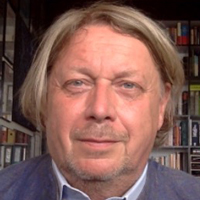 Kurt Huber, MD, FESC, FACC, FAHA, is director of the Department of Cardiology and intensive Care Medicine at the Clinic Ottakring, director of the Department of Cardiology at the Clinic Hietzing and Dean of Research and Professor for Acute and Interventional Cardiology at the Sigmund Freud University, Medical School, Vienna, Austria. He is an interventional cardiologist with over 35 years of experience. His main research interest covers basic research (mechanisms of thrombus formation and dissolution) as well as clinical research (acute coronary syndromes, organization of STEMI networks, antithrombotic therapy in CV diseases). He has performed over 100 international clinical trials as national coordinator and steering committee member, has published over 900 peer reviewed papers to date, his Hirsh factor is 84 (Thomson Reuters), his life IF > 5000, he has organized > 250 national and international conferences, and he has been listed annually since 2015 among the top 0,1% of the most cited researchers globally in Clinical Medicine (Clarivate). He is currently president of the Association for Acute Cardiovascular Care (ACVC) of the European Society of Cardiology (ESC).
Kurt Huber, MD, FESC, FACC, FAHA, is director of the Department of Cardiology and intensive Care Medicine at the Clinic Ottakring, director of the Department of Cardiology at the Clinic Hietzing and Dean of Research and Professor for Acute and Interventional Cardiology at the Sigmund Freud University, Medical School, Vienna, Austria. He is an interventional cardiologist with over 35 years of experience. His main research interest covers basic research (mechanisms of thrombus formation and dissolution) as well as clinical research (acute coronary syndromes, organization of STEMI networks, antithrombotic therapy in CV diseases). He has performed over 100 international clinical trials as national coordinator and steering committee member, has published over 900 peer reviewed papers to date, his Hirsh factor is 84 (Thomson Reuters), his life IF > 5000, he has organized > 250 national and international conferences, and he has been listed annually since 2015 among the top 0,1% of the most cited researchers globally in Clinical Medicine (Clarivate). He is currently president of the Association for Acute Cardiovascular Care (ACVC) of the European Society of Cardiology (ESC).
 Kurt Huber, MD, FESC, FACC, FAHA, is director of the Department of Cardiology and intensive Care Medicine at the Clinic Ottakring, director of the Department of Cardiology at the Clinic Hietzing and Dean of Research and Professor for Acute and Interventional Cardiology at the Sigmund Freud University, Medical School, Vienna, Austria. He is an interventional cardiologist with over 35 years of experience. His main research interest covers basic research (mechanisms of thrombus formation and dissolution) as well as clinical research (acute coronary syndromes, organization of STEMI networks, antithrombotic therapy in CV diseases). He has performed over 100 international clinical trials as national coordinator and steering committee member, has published over 900 peer reviewed papers to date, his Hirsh factor is 84 (Thomson Reuters), his life IF > 5000, he has organized > 250 national and international conferences, and he has been listed annually since 2015 among the top 0,1% of the most cited researchers globally in Clinical Medicine (Clarivate). He is currently president of the Association for Acute Cardiovascular Care (ACVC) of the European Society of Cardiology (ESC).
Kurt Huber, MD, FESC, FACC, FAHA, is director of the Department of Cardiology and intensive Care Medicine at the Clinic Ottakring, director of the Department of Cardiology at the Clinic Hietzing and Dean of Research and Professor for Acute and Interventional Cardiology at the Sigmund Freud University, Medical School, Vienna, Austria. He is an interventional cardiologist with over 35 years of experience. His main research interest covers basic research (mechanisms of thrombus formation and dissolution) as well as clinical research (acute coronary syndromes, organization of STEMI networks, antithrombotic therapy in CV diseases). He has performed over 100 international clinical trials as national coordinator and steering committee member, has published over 900 peer reviewed papers to date, his Hirsh factor is 84 (Thomson Reuters), his life IF > 5000, he has organized > 250 national and international conferences, and he has been listed annually since 2015 among the top 0,1% of the most cited researchers globally in Clinical Medicine (Clarivate). He is currently president of the Association for Acute Cardiovascular Care (ACVC) of the European Society of Cardiology (ESC).
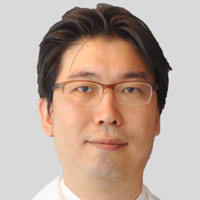 Dr. Hyoung Kyu Kim is currently a professor at the Cardiovascular and Metabolic Diseases Center (CMDC), Inje University. From 2008 to 2012 he conducted research as a postdoctoral fellow and research professor at the CMDC. He was appointed professor at the CMDC, Inje University School of Medicine in 2012, where he continues to this day.
During his doctoral course, he was interested in proteomics and mitochondrial research and conducted related research. After his doctorate degree, based on the regulation of proteomics and mitochondrial function, he investigated the association between mitochondrial dysfunction and disease in cardiovascular and metabolic diseases and the regulation of mitochondrial function. Research on treatment strategies through he has published more than 110 papers in the field of mitochondrial and cardiovascular and metabolic diseases. Since he first attended the SHVM 2016 symposium in Beijing with the introduction of Professor Dale Abel, he has been attending the regular SVHM symposium every year until now, and is serving as a committee member of the Seoul SHVM symposium in 2022. His recent research interest is to reveal the relationship between cardiovascular and metabolic diseases and cereblon, and to discover treatment strategies targeting them.
Dr. Hyoung Kyu Kim is currently a professor at the Cardiovascular and Metabolic Diseases Center (CMDC), Inje University. From 2008 to 2012 he conducted research as a postdoctoral fellow and research professor at the CMDC. He was appointed professor at the CMDC, Inje University School of Medicine in 2012, where he continues to this day.
During his doctoral course, he was interested in proteomics and mitochondrial research and conducted related research. After his doctorate degree, based on the regulation of proteomics and mitochondrial function, he investigated the association between mitochondrial dysfunction and disease in cardiovascular and metabolic diseases and the regulation of mitochondrial function. Research on treatment strategies through he has published more than 110 papers in the field of mitochondrial and cardiovascular and metabolic diseases. Since he first attended the SHVM 2016 symposium in Beijing with the introduction of Professor Dale Abel, he has been attending the regular SVHM symposium every year until now, and is serving as a committee member of the Seoul SHVM symposium in 2022. His recent research interest is to reveal the relationship between cardiovascular and metabolic diseases and cereblon, and to discover treatment strategies targeting them.
 Dr. Hyoung Kyu Kim is currently a professor at the Cardiovascular and Metabolic Diseases Center (CMDC), Inje University. From 2008 to 2012 he conducted research as a postdoctoral fellow and research professor at the CMDC. He was appointed professor at the CMDC, Inje University School of Medicine in 2012, where he continues to this day.
During his doctoral course, he was interested in proteomics and mitochondrial research and conducted related research. After his doctorate degree, based on the regulation of proteomics and mitochondrial function, he investigated the association between mitochondrial dysfunction and disease in cardiovascular and metabolic diseases and the regulation of mitochondrial function. Research on treatment strategies through he has published more than 110 papers in the field of mitochondrial and cardiovascular and metabolic diseases. Since he first attended the SHVM 2016 symposium in Beijing with the introduction of Professor Dale Abel, he has been attending the regular SVHM symposium every year until now, and is serving as a committee member of the Seoul SHVM symposium in 2022. His recent research interest is to reveal the relationship between cardiovascular and metabolic diseases and cereblon, and to discover treatment strategies targeting them.
Dr. Hyoung Kyu Kim is currently a professor at the Cardiovascular and Metabolic Diseases Center (CMDC), Inje University. From 2008 to 2012 he conducted research as a postdoctoral fellow and research professor at the CMDC. He was appointed professor at the CMDC, Inje University School of Medicine in 2012, where he continues to this day.
During his doctoral course, he was interested in proteomics and mitochondrial research and conducted related research. After his doctorate degree, based on the regulation of proteomics and mitochondrial function, he investigated the association between mitochondrial dysfunction and disease in cardiovascular and metabolic diseases and the regulation of mitochondrial function. Research on treatment strategies through he has published more than 110 papers in the field of mitochondrial and cardiovascular and metabolic diseases. Since he first attended the SHVM 2016 symposium in Beijing with the introduction of Professor Dale Abel, he has been attending the regular SVHM symposium every year until now, and is serving as a committee member of the Seoul SHVM symposium in 2022. His recent research interest is to reveal the relationship between cardiovascular and metabolic diseases and cereblon, and to discover treatment strategies targeting them.
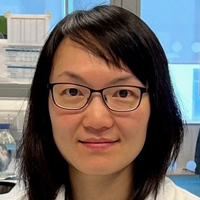 I am currently a Senior Research Fellow/Senior Lecturer in Division of Cardiovascular Sciences, FBHM, the University of Manchester. I obtained my first degree in Medicine (2003) at Peking University in China, and PhD (2007) at the University of Manchester. After postdoc training at the University of Manchester, I was awarded British Heart Foundation (BHF) Intermediate Felalowship in 2015, and became a Senior Research Fellow/Senior Lecturer in 2020. My research is focusing on the understanding of novel mechanisms and treatment strategies for metabolic disorders induced cardiovascular diseases.
I am currently a Senior Research Fellow/Senior Lecturer in Division of Cardiovascular Sciences, FBHM, the University of Manchester. I obtained my first degree in Medicine (2003) at Peking University in China, and PhD (2007) at the University of Manchester. After postdoc training at the University of Manchester, I was awarded British Heart Foundation (BHF) Intermediate Felalowship in 2015, and became a Senior Research Fellow/Senior Lecturer in 2020. My research is focusing on the understanding of novel mechanisms and treatment strategies for metabolic disorders induced cardiovascular diseases.
The causes of diabetes associated heart diseases are multifactorial, including various maladaptation of cellular and molecular mechanisms to the metabolic stress, eg. endoplasmic reticulum stress, inflammatory regulation, and cardiac metabolic alterations. My group utilise gene modified animal models, in vitro models and induced human pluripotent stem (iPS)-cardiomyocytes to advance the understandings of the underlying molecular mechanisms underlying the pathogenesis of heart disease, and to explore the novel gene or pharmacological therapies and alternative remedies to prevent heart failure in metabolic disorders.
 I am currently a Senior Research Fellow/Senior Lecturer in Division of Cardiovascular Sciences, FBHM, the University of Manchester. I obtained my first degree in Medicine (2003) at Peking University in China, and PhD (2007) at the University of Manchester. After postdoc training at the University of Manchester, I was awarded British Heart Foundation (BHF) Intermediate Felalowship in 2015, and became a Senior Research Fellow/Senior Lecturer in 2020. My research is focusing on the understanding of novel mechanisms and treatment strategies for metabolic disorders induced cardiovascular diseases.
I am currently a Senior Research Fellow/Senior Lecturer in Division of Cardiovascular Sciences, FBHM, the University of Manchester. I obtained my first degree in Medicine (2003) at Peking University in China, and PhD (2007) at the University of Manchester. After postdoc training at the University of Manchester, I was awarded British Heart Foundation (BHF) Intermediate Felalowship in 2015, and became a Senior Research Fellow/Senior Lecturer in 2020. My research is focusing on the understanding of novel mechanisms and treatment strategies for metabolic disorders induced cardiovascular diseases.
The causes of diabetes associated heart diseases are multifactorial, including various maladaptation of cellular and molecular mechanisms to the metabolic stress, eg. endoplasmic reticulum stress, inflammatory regulation, and cardiac metabolic alterations. My group utilise gene modified animal models, in vitro models and induced human pluripotent stem (iPS)-cardiomyocytes to advance the understandings of the underlying molecular mechanisms underlying the pathogenesis of heart disease, and to explore the novel gene or pharmacological therapies and alternative remedies to prevent heart failure in metabolic disorders.
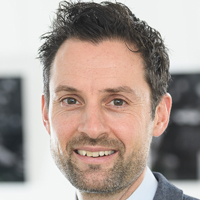 Christoph Maack received his MD at the University of Cologne (Germany) in 2000. Between 2000 and 2017, he worked at the Department of Cardiology at the University of the Saarland in Homburg, Germany, and from 2002-2005 as a post-doctoral researcher in the lab of Brian O’Rourke at the Department of Cardiology at Johns Hopkins University in Baltimore, MD, US. In 2017, he took the Chair of the Department of Translational Research at the Comprehensive Heart Failure Center (CHFC) at the University Clinic in Würzburg and was elected Spokesperson of the CHFC. His work focuses on cellular defects in chronic heart failure, with a special emphasis on the mechanisms of contractile, mitochondrial and metabolic dysfunction in heart failure. For his work, Maack received several awards, such as the Albert-Fraenkel- (2014) and the Arthur-Weber Awards (2015) of the German Cardiac Society (DGK), respectively. He served on the Board of the Heart Failure Association (HFA) of the European Society of Cardiology (ESC) from 2010-2016, where he served as the Coordinator of the Translational Research Committee (2011-2014) and the Chair of the Basic Science section (2014-2016). In 2018, he entered the Council of the International Society of Heart Research (ISHR), European Section (ES) and since 2020, is its president-elect. In 2022, he was elected Congress President for the Annual Meeting of the DGK in 2024.
Christoph Maack received his MD at the University of Cologne (Germany) in 2000. Between 2000 and 2017, he worked at the Department of Cardiology at the University of the Saarland in Homburg, Germany, and from 2002-2005 as a post-doctoral researcher in the lab of Brian O’Rourke at the Department of Cardiology at Johns Hopkins University in Baltimore, MD, US. In 2017, he took the Chair of the Department of Translational Research at the Comprehensive Heart Failure Center (CHFC) at the University Clinic in Würzburg and was elected Spokesperson of the CHFC. His work focuses on cellular defects in chronic heart failure, with a special emphasis on the mechanisms of contractile, mitochondrial and metabolic dysfunction in heart failure. For his work, Maack received several awards, such as the Albert-Fraenkel- (2014) and the Arthur-Weber Awards (2015) of the German Cardiac Society (DGK), respectively. He served on the Board of the Heart Failure Association (HFA) of the European Society of Cardiology (ESC) from 2010-2016, where he served as the Coordinator of the Translational Research Committee (2011-2014) and the Chair of the Basic Science section (2014-2016). In 2018, he entered the Council of the International Society of Heart Research (ISHR), European Section (ES) and since 2020, is its president-elect. In 2022, he was elected Congress President for the Annual Meeting of the DGK in 2024.
 Christoph Maack received his MD at the University of Cologne (Germany) in 2000. Between 2000 and 2017, he worked at the Department of Cardiology at the University of the Saarland in Homburg, Germany, and from 2002-2005 as a post-doctoral researcher in the lab of Brian O’Rourke at the Department of Cardiology at Johns Hopkins University in Baltimore, MD, US. In 2017, he took the Chair of the Department of Translational Research at the Comprehensive Heart Failure Center (CHFC) at the University Clinic in Würzburg and was elected Spokesperson of the CHFC. His work focuses on cellular defects in chronic heart failure, with a special emphasis on the mechanisms of contractile, mitochondrial and metabolic dysfunction in heart failure. For his work, Maack received several awards, such as the Albert-Fraenkel- (2014) and the Arthur-Weber Awards (2015) of the German Cardiac Society (DGK), respectively. He served on the Board of the Heart Failure Association (HFA) of the European Society of Cardiology (ESC) from 2010-2016, where he served as the Coordinator of the Translational Research Committee (2011-2014) and the Chair of the Basic Science section (2014-2016). In 2018, he entered the Council of the International Society of Heart Research (ISHR), European Section (ES) and since 2020, is its president-elect. In 2022, he was elected Congress President for the Annual Meeting of the DGK in 2024.
Christoph Maack received his MD at the University of Cologne (Germany) in 2000. Between 2000 and 2017, he worked at the Department of Cardiology at the University of the Saarland in Homburg, Germany, and from 2002-2005 as a post-doctoral researcher in the lab of Brian O’Rourke at the Department of Cardiology at Johns Hopkins University in Baltimore, MD, US. In 2017, he took the Chair of the Department of Translational Research at the Comprehensive Heart Failure Center (CHFC) at the University Clinic in Würzburg and was elected Spokesperson of the CHFC. His work focuses on cellular defects in chronic heart failure, with a special emphasis on the mechanisms of contractile, mitochondrial and metabolic dysfunction in heart failure. For his work, Maack received several awards, such as the Albert-Fraenkel- (2014) and the Arthur-Weber Awards (2015) of the German Cardiac Society (DGK), respectively. He served on the Board of the Heart Failure Association (HFA) of the European Society of Cardiology (ESC) from 2010-2016, where he served as the Coordinator of the Translational Research Committee (2011-2014) and the Chair of the Basic Science section (2014-2016). In 2018, he entered the Council of the International Society of Heart Research (ISHR), European Section (ES) and since 2020, is its president-elect. In 2022, he was elected Congress President for the Annual Meeting of the DGK in 2024.
 Bettina Mittendorfer is Professor of Medicine in the Division of Geriatrics and Nutritional Science at Washington University School of Medicine in St. Louis, MO. She is also the Director of the NIH-funded Clinical and Translational Research Unit, which provides personnel and infrastructure support for sophisticated inpatient and outpatient clinical trials, Associate Director of the NIH-funded Washington University Nutrition and Obesity Research Center (NORC), Director of the Clinical Science Research Core of the NORC, and the Director of the Longevity Research Program, which is supported by the Longer Life Foundation. Dr. Mittendorfer’s research focuses on the metabolic and physical function abnormalities associated with obesity and aging and the effect of nutrition and physical activity interventions on metabolic and physical function. She has published over 160 peer-reviewed original research papers and scientific reviews. She serves as Associate Editor for the journals Obesity and J Physiol, as Editor of the carbohydrate section for the review journal Curr Opin Clin Nutr Metab Care, and as Associate Editor for Physiological Reviews.
Bettina Mittendorfer is Professor of Medicine in the Division of Geriatrics and Nutritional Science at Washington University School of Medicine in St. Louis, MO. She is also the Director of the NIH-funded Clinical and Translational Research Unit, which provides personnel and infrastructure support for sophisticated inpatient and outpatient clinical trials, Associate Director of the NIH-funded Washington University Nutrition and Obesity Research Center (NORC), Director of the Clinical Science Research Core of the NORC, and the Director of the Longevity Research Program, which is supported by the Longer Life Foundation. Dr. Mittendorfer’s research focuses on the metabolic and physical function abnormalities associated with obesity and aging and the effect of nutrition and physical activity interventions on metabolic and physical function. She has published over 160 peer-reviewed original research papers and scientific reviews. She serves as Associate Editor for the journals Obesity and J Physiol, as Editor of the carbohydrate section for the review journal Curr Opin Clin Nutr Metab Care, and as Associate Editor for Physiological Reviews.
 Bettina Mittendorfer is Professor of Medicine in the Division of Geriatrics and Nutritional Science at Washington University School of Medicine in St. Louis, MO. She is also the Director of the NIH-funded Clinical and Translational Research Unit, which provides personnel and infrastructure support for sophisticated inpatient and outpatient clinical trials, Associate Director of the NIH-funded Washington University Nutrition and Obesity Research Center (NORC), Director of the Clinical Science Research Core of the NORC, and the Director of the Longevity Research Program, which is supported by the Longer Life Foundation. Dr. Mittendorfer’s research focuses on the metabolic and physical function abnormalities associated with obesity and aging and the effect of nutrition and physical activity interventions on metabolic and physical function. She has published over 160 peer-reviewed original research papers and scientific reviews. She serves as Associate Editor for the journals Obesity and J Physiol, as Editor of the carbohydrate section for the review journal Curr Opin Clin Nutr Metab Care, and as Associate Editor for Physiological Reviews.
Bettina Mittendorfer is Professor of Medicine in the Division of Geriatrics and Nutritional Science at Washington University School of Medicine in St. Louis, MO. She is also the Director of the NIH-funded Clinical and Translational Research Unit, which provides personnel and infrastructure support for sophisticated inpatient and outpatient clinical trials, Associate Director of the NIH-funded Washington University Nutrition and Obesity Research Center (NORC), Director of the Clinical Science Research Core of the NORC, and the Director of the Longevity Research Program, which is supported by the Longer Life Foundation. Dr. Mittendorfer’s research focuses on the metabolic and physical function abnormalities associated with obesity and aging and the effect of nutrition and physical activity interventions on metabolic and physical function. She has published over 160 peer-reviewed original research papers and scientific reviews. She serves as Associate Editor for the journals Obesity and J Physiol, as Editor of the carbohydrate section for the review journal Curr Opin Clin Nutr Metab Care, and as Associate Editor for Physiological Reviews.
 Dr. Thomas Pulinilkunnil is a tenured Associate Professor in the Department of Biochemistry and Molecular Biology at Dalhousie University, Canada. Dr. Pulinilkunnil co-founded the pan-Canadian IMPART team (https://impart.team/) and co-leads the Dalhousie Cardiac Research Excellence Wave (Dal Crew, https://medicine.dal.ca/research/cardiovascular-research.html). Dr. Pulinilkunnil is a leading expert in metabolic disease phenotyping. Dr. Pulinilkunnil’s research program employs a multispecies approach to uncover molecular mechanisms by which hormones and nutrients influence energy metabolism, organelle function and cellular physiology in the cardiac and skeletal muscle. Dr. Pulinilkunnil’s research program is funded by NSERC, CIHR, Diabetes Canada, Heart and Stroke NB, DMRF and NBHRF. Diabetes Canada-funded research program uncovered a novel mechanism by which obesity and diabetes disrupted lysosomal function to impact autophagy and heart failure. NSERC-funded research demonstrated that dysregulation of branched-chain amino acid catabolism is associated more robustly with organelle dysfunction, insulin resistance and oncogenesis. Dr. Pulinilkunnil is a recipient of the Diabetes Canada Scholar Award, and his research prominently features in reputable journals. Dr. Pulinilkunnil served as a reviewer for national and international grant panels. He also served on the organizing committee of national and international conferences, including the International Society for Heart Research, Society of Heart and Vascular Metabolism and Canadian Society of Molecular Biosciences meetings. Dr. Pulinilkunnil is Associate Editor for Frontiers in Cardiovascular Medicine-Cardiovascular Metabolism and on the editorial board of Nutrient and Cells. Dr. Pulinilkunnil is a passionate mentor and an active teacher.
Dr. Thomas Pulinilkunnil is a tenured Associate Professor in the Department of Biochemistry and Molecular Biology at Dalhousie University, Canada. Dr. Pulinilkunnil co-founded the pan-Canadian IMPART team (https://impart.team/) and co-leads the Dalhousie Cardiac Research Excellence Wave (Dal Crew, https://medicine.dal.ca/research/cardiovascular-research.html). Dr. Pulinilkunnil is a leading expert in metabolic disease phenotyping. Dr. Pulinilkunnil’s research program employs a multispecies approach to uncover molecular mechanisms by which hormones and nutrients influence energy metabolism, organelle function and cellular physiology in the cardiac and skeletal muscle. Dr. Pulinilkunnil’s research program is funded by NSERC, CIHR, Diabetes Canada, Heart and Stroke NB, DMRF and NBHRF. Diabetes Canada-funded research program uncovered a novel mechanism by which obesity and diabetes disrupted lysosomal function to impact autophagy and heart failure. NSERC-funded research demonstrated that dysregulation of branched-chain amino acid catabolism is associated more robustly with organelle dysfunction, insulin resistance and oncogenesis. Dr. Pulinilkunnil is a recipient of the Diabetes Canada Scholar Award, and his research prominently features in reputable journals. Dr. Pulinilkunnil served as a reviewer for national and international grant panels. He also served on the organizing committee of national and international conferences, including the International Society for Heart Research, Society of Heart and Vascular Metabolism and Canadian Society of Molecular Biosciences meetings. Dr. Pulinilkunnil is Associate Editor for Frontiers in Cardiovascular Medicine-Cardiovascular Metabolism and on the editorial board of Nutrient and Cells. Dr. Pulinilkunnil is a passionate mentor and an active teacher.
 Dr. Thomas Pulinilkunnil is a tenured Associate Professor in the Department of Biochemistry and Molecular Biology at Dalhousie University, Canada. Dr. Pulinilkunnil co-founded the pan-Canadian IMPART team (https://impart.team/) and co-leads the Dalhousie Cardiac Research Excellence Wave (Dal Crew, https://medicine.dal.ca/research/cardiovascular-research.html). Dr. Pulinilkunnil is a leading expert in metabolic disease phenotyping. Dr. Pulinilkunnil’s research program employs a multispecies approach to uncover molecular mechanisms by which hormones and nutrients influence energy metabolism, organelle function and cellular physiology in the cardiac and skeletal muscle. Dr. Pulinilkunnil’s research program is funded by NSERC, CIHR, Diabetes Canada, Heart and Stroke NB, DMRF and NBHRF. Diabetes Canada-funded research program uncovered a novel mechanism by which obesity and diabetes disrupted lysosomal function to impact autophagy and heart failure. NSERC-funded research demonstrated that dysregulation of branched-chain amino acid catabolism is associated more robustly with organelle dysfunction, insulin resistance and oncogenesis. Dr. Pulinilkunnil is a recipient of the Diabetes Canada Scholar Award, and his research prominently features in reputable journals. Dr. Pulinilkunnil served as a reviewer for national and international grant panels. He also served on the organizing committee of national and international conferences, including the International Society for Heart Research, Society of Heart and Vascular Metabolism and Canadian Society of Molecular Biosciences meetings. Dr. Pulinilkunnil is Associate Editor for Frontiers in Cardiovascular Medicine-Cardiovascular Metabolism and on the editorial board of Nutrient and Cells. Dr. Pulinilkunnil is a passionate mentor and an active teacher.
Dr. Thomas Pulinilkunnil is a tenured Associate Professor in the Department of Biochemistry and Molecular Biology at Dalhousie University, Canada. Dr. Pulinilkunnil co-founded the pan-Canadian IMPART team (https://impart.team/) and co-leads the Dalhousie Cardiac Research Excellence Wave (Dal Crew, https://medicine.dal.ca/research/cardiovascular-research.html). Dr. Pulinilkunnil is a leading expert in metabolic disease phenotyping. Dr. Pulinilkunnil’s research program employs a multispecies approach to uncover molecular mechanisms by which hormones and nutrients influence energy metabolism, organelle function and cellular physiology in the cardiac and skeletal muscle. Dr. Pulinilkunnil’s research program is funded by NSERC, CIHR, Diabetes Canada, Heart and Stroke NB, DMRF and NBHRF. Diabetes Canada-funded research program uncovered a novel mechanism by which obesity and diabetes disrupted lysosomal function to impact autophagy and heart failure. NSERC-funded research demonstrated that dysregulation of branched-chain amino acid catabolism is associated more robustly with organelle dysfunction, insulin resistance and oncogenesis. Dr. Pulinilkunnil is a recipient of the Diabetes Canada Scholar Award, and his research prominently features in reputable journals. Dr. Pulinilkunnil served as a reviewer for national and international grant panels. He also served on the organizing committee of national and international conferences, including the International Society for Heart Research, Society of Heart and Vascular Metabolism and Canadian Society of Molecular Biosciences meetings. Dr. Pulinilkunnil is Associate Editor for Frontiers in Cardiovascular Medicine-Cardiovascular Metabolism and on the editorial board of Nutrient and Cells. Dr. Pulinilkunnil is a passionate mentor and an active teacher.
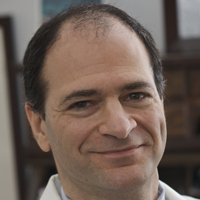 Dr. Paul M Ridker, MD (Harvard Medical School 1985), MPH (Harvard School of Public Health 1990), serves as the Eugene Braunwald Professor of Medicine at the Harvard Medical School and as Director of the Center for Cardiovascular Disease Prevention at the Brigham and Women’s Hospital in Boston Massachusetts USA.
Dr. Paul M Ridker, MD (Harvard Medical School 1985), MPH (Harvard School of Public Health 1990), serves as the Eugene Braunwald Professor of Medicine at the Harvard Medical School and as Director of the Center for Cardiovascular Disease Prevention at the Brigham and Women’s Hospital in Boston Massachusetts USA.
Over a 30-year period, Dr. Ridker and his collaborators provided the first proof-of-principle for the inflammation hypothesis of atherothrombosis in humans; the first demonstration that statin therapy is both lipid-lowering and anti-inflammatory; the first FDA-approved diagnostic test for vascular inflammation (hsCRP); the first proven anti-inflammatory treatment for heart disease (canakinumab); and brought into clinical practice worldwide the concept of “residual inflammatory risk”. On multiple occasions Dr. Ridker’s work has altered clinical guidelines for the diagnosis, treatment, and prevention of atherosclerotic disease – the most common cause of death on a global basis. As a direct consequence of this work, multiple novel anti-inflammatory agents targeting interrelated aspects of heart disease ranging from chronic atherosclerosis to acute ischemia to congestive heart failure are under development at nearly all major pharmaceutical companies worldwide. Dr. Ridker’s work has thus catalyzed the first new target for atherothrombosis in 40 years that is not related to cholesterol, blood pressure, or coagulation.
Dr. Ridker is additionally known internationally for his leadership of over 15 major multi-national randomized clinical trials including PREVENT, JUPITER, SPIRE-1, SPIRE-2, CANTOS, CIRT, PROMINENT, and ZEUS. The recipient of multiple honorary degrees and international awards, Dr. Ridker is a Distinguished Scientist of the American Heart Association and an elected member of the National Academy of Sciences, USA.
In 2020, in response to the COVID-19 pandemic, Dr. Ridker was asked by the U.S. government and the National Heart Lung and Blood Institute to lead the ACTIV-4B Outpatient COVID-19 Thrombosis Prevention Trial.
With an h-index in 2022 of 261 and with over 300,000 cumulative citations, Dr. Ridker is among the top 15 most-cited biomedical researchers worldwide.
Dr. Ridker’s research unit has been continuously funded by the US National Institutes of Health (NIH). With regard to mentoring and teaching, Dr. Ridker served for 20 years as Principal Investigator of an NHLBI-funded T32 Training Grant in Cardiovascular Epidemiology which supported the early career development of 60 trainees, almost all of whom remain active in academia, many now nationally and internationally recognized in their own right.
 Dr. Paul M Ridker, MD (Harvard Medical School 1985), MPH (Harvard School of Public Health 1990), serves as the Eugene Braunwald Professor of Medicine at the Harvard Medical School and as Director of the Center for Cardiovascular Disease Prevention at the Brigham and Women’s Hospital in Boston Massachusetts USA.
Dr. Paul M Ridker, MD (Harvard Medical School 1985), MPH (Harvard School of Public Health 1990), serves as the Eugene Braunwald Professor of Medicine at the Harvard Medical School and as Director of the Center for Cardiovascular Disease Prevention at the Brigham and Women’s Hospital in Boston Massachusetts USA.
Over a 30-year period, Dr. Ridker and his collaborators provided the first proof-of-principle for the inflammation hypothesis of atherothrombosis in humans; the first demonstration that statin therapy is both lipid-lowering and anti-inflammatory; the first FDA-approved diagnostic test for vascular inflammation (hsCRP); the first proven anti-inflammatory treatment for heart disease (canakinumab); and brought into clinical practice worldwide the concept of “residual inflammatory risk”. On multiple occasions Dr. Ridker’s work has altered clinical guidelines for the diagnosis, treatment, and prevention of atherosclerotic disease – the most common cause of death on a global basis. As a direct consequence of this work, multiple novel anti-inflammatory agents targeting interrelated aspects of heart disease ranging from chronic atherosclerosis to acute ischemia to congestive heart failure are under development at nearly all major pharmaceutical companies worldwide. Dr. Ridker’s work has thus catalyzed the first new target for atherothrombosis in 40 years that is not related to cholesterol, blood pressure, or coagulation.
Dr. Ridker is additionally known internationally for his leadership of over 15 major multi-national randomized clinical trials including PREVENT, JUPITER, SPIRE-1, SPIRE-2, CANTOS, CIRT, PROMINENT, and ZEUS. The recipient of multiple honorary degrees and international awards, Dr. Ridker is a Distinguished Scientist of the American Heart Association and an elected member of the National Academy of Sciences, USA.
In 2020, in response to the COVID-19 pandemic, Dr. Ridker was asked by the U.S. government and the National Heart Lung and Blood Institute to lead the ACTIV-4B Outpatient COVID-19 Thrombosis Prevention Trial.
With an h-index in 2022 of 261 and with over 300,000 cumulative citations, Dr. Ridker is among the top 15 most-cited biomedical researchers worldwide.
Dr. Ridker’s research unit has been continuously funded by the US National Institutes of Health (NIH). With regard to mentoring and teaching, Dr. Ridker served for 20 years as Principal Investigator of an NHLBI-funded T32 Training Grant in Cardiovascular Epidemiology which supported the early career development of 60 trainees, almost all of whom remain active in academia, many now nationally and internationally recognized in their own right.
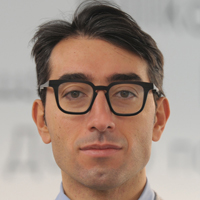 I am a MD/PhD cardiologist-scientist whose research focuses on molecular mechanisms of remodeling in the disease-stressed myocardium. I am leading a research group broadly interested in understanding how metabolic alterations contribute to the pathogenesis of the different forms of heart failure. The prevalence of metabolic disease and heart failure – collectively named cardiometabolic disease – is rising sharply worldwide. The mechanisms underlying the metabolic disturbances of the two most common forms of heart failure, heart failure with reduced ejection fraction (HFrEF) and heart failure with preserved ejection fraction (HFpEF) remain ill-defined. We focus on defining, at the cellular and molecular level, how alterations in metabolism, posttranslational modifications, and protein quality control modulate cardiac function and promote pathological cardiac remodeling and heart failure. Simply put, we ask the question: what are the metabolic drivers of cardiomyocyte dysfunction in HFpEF and HFrEF?Through the employment of multiple experimental approaches, including in vivo and in vitro disease-modeling, we address these fundamental challenges directly.
I am a MD/PhD cardiologist-scientist whose research focuses on molecular mechanisms of remodeling in the disease-stressed myocardium. I am leading a research group broadly interested in understanding how metabolic alterations contribute to the pathogenesis of the different forms of heart failure. The prevalence of metabolic disease and heart failure – collectively named cardiometabolic disease – is rising sharply worldwide. The mechanisms underlying the metabolic disturbances of the two most common forms of heart failure, heart failure with reduced ejection fraction (HFrEF) and heart failure with preserved ejection fraction (HFpEF) remain ill-defined. We focus on defining, at the cellular and molecular level, how alterations in metabolism, posttranslational modifications, and protein quality control modulate cardiac function and promote pathological cardiac remodeling and heart failure. Simply put, we ask the question: what are the metabolic drivers of cardiomyocyte dysfunction in HFpEF and HFrEF?Through the employment of multiple experimental approaches, including in vivo and in vitro disease-modeling, we address these fundamental challenges directly.
 I am a MD/PhD cardiologist-scientist whose research focuses on molecular mechanisms of remodeling in the disease-stressed myocardium. I am leading a research group broadly interested in understanding how metabolic alterations contribute to the pathogenesis of the different forms of heart failure. The prevalence of metabolic disease and heart failure – collectively named cardiometabolic disease – is rising sharply worldwide. The mechanisms underlying the metabolic disturbances of the two most common forms of heart failure, heart failure with reduced ejection fraction (HFrEF) and heart failure with preserved ejection fraction (HFpEF) remain ill-defined. We focus on defining, at the cellular and molecular level, how alterations in metabolism, posttranslational modifications, and protein quality control modulate cardiac function and promote pathological cardiac remodeling and heart failure. Simply put, we ask the question: what are the metabolic drivers of cardiomyocyte dysfunction in HFpEF and HFrEF?Through the employment of multiple experimental approaches, including in vivo and in vitro disease-modeling, we address these fundamental challenges directly.
I am a MD/PhD cardiologist-scientist whose research focuses on molecular mechanisms of remodeling in the disease-stressed myocardium. I am leading a research group broadly interested in understanding how metabolic alterations contribute to the pathogenesis of the different forms of heart failure. The prevalence of metabolic disease and heart failure – collectively named cardiometabolic disease – is rising sharply worldwide. The mechanisms underlying the metabolic disturbances of the two most common forms of heart failure, heart failure with reduced ejection fraction (HFrEF) and heart failure with preserved ejection fraction (HFpEF) remain ill-defined. We focus on defining, at the cellular and molecular level, how alterations in metabolism, posttranslational modifications, and protein quality control modulate cardiac function and promote pathological cardiac remodeling and heart failure. Simply put, we ask the question: what are the metabolic drivers of cardiomyocyte dysfunction in HFpEF and HFrEF?Through the employment of multiple experimental approaches, including in vivo and in vitro disease-modeling, we address these fundamental challenges directly.
 Greg Shearer is a professor of Nutrition and Physiology at The Pennsylvania State University. His research focuses on lipid signaling and the regulatory activities of fatty acid metabolites known as oxylipins, with a special emphasis on their role in cardiovascular disease and cognitive function. Since oxylipins regulate intracellular inflammation, fibroblast activation, and muscle contractility, their bioactivities have important implications for ventricular remodeling, regulation of systemic inflammation, and hemodynamics. Dr. Shearer’s work has characterized the role of lipoproteins in the transport of these bioactive agents between tissues and organ systems. In contexts as broad as sleep deprivation, metabolic disease, post-menopausal dyslipidemia, and populations at risk for cognitive decline, there are strong associations with circulating oxylipins and a shift from oxylipins with anti-inflammatory activities toward oxylipins having pro-inflammatory activities. This work provides a molecular framework for understanding how and when polyunsaturated fatty acids can be effective therapies, and how dyslipidemias mediate the progression of chronic diseases such as atherosclerosis and ventricular remodeling.
Greg Shearer is a professor of Nutrition and Physiology at The Pennsylvania State University. His research focuses on lipid signaling and the regulatory activities of fatty acid metabolites known as oxylipins, with a special emphasis on their role in cardiovascular disease and cognitive function. Since oxylipins regulate intracellular inflammation, fibroblast activation, and muscle contractility, their bioactivities have important implications for ventricular remodeling, regulation of systemic inflammation, and hemodynamics. Dr. Shearer’s work has characterized the role of lipoproteins in the transport of these bioactive agents between tissues and organ systems. In contexts as broad as sleep deprivation, metabolic disease, post-menopausal dyslipidemia, and populations at risk for cognitive decline, there are strong associations with circulating oxylipins and a shift from oxylipins with anti-inflammatory activities toward oxylipins having pro-inflammatory activities. This work provides a molecular framework for understanding how and when polyunsaturated fatty acids can be effective therapies, and how dyslipidemias mediate the progression of chronic diseases such as atherosclerosis and ventricular remodeling.
 Greg Shearer is a professor of Nutrition and Physiology at The Pennsylvania State University. His research focuses on lipid signaling and the regulatory activities of fatty acid metabolites known as oxylipins, with a special emphasis on their role in cardiovascular disease and cognitive function. Since oxylipins regulate intracellular inflammation, fibroblast activation, and muscle contractility, their bioactivities have important implications for ventricular remodeling, regulation of systemic inflammation, and hemodynamics. Dr. Shearer’s work has characterized the role of lipoproteins in the transport of these bioactive agents between tissues and organ systems. In contexts as broad as sleep deprivation, metabolic disease, post-menopausal dyslipidemia, and populations at risk for cognitive decline, there are strong associations with circulating oxylipins and a shift from oxylipins with anti-inflammatory activities toward oxylipins having pro-inflammatory activities. This work provides a molecular framework for understanding how and when polyunsaturated fatty acids can be effective therapies, and how dyslipidemias mediate the progression of chronic diseases such as atherosclerosis and ventricular remodeling.
Greg Shearer is a professor of Nutrition and Physiology at The Pennsylvania State University. His research focuses on lipid signaling and the regulatory activities of fatty acid metabolites known as oxylipins, with a special emphasis on their role in cardiovascular disease and cognitive function. Since oxylipins regulate intracellular inflammation, fibroblast activation, and muscle contractility, their bioactivities have important implications for ventricular remodeling, regulation of systemic inflammation, and hemodynamics. Dr. Shearer’s work has characterized the role of lipoproteins in the transport of these bioactive agents between tissues and organ systems. In contexts as broad as sleep deprivation, metabolic disease, post-menopausal dyslipidemia, and populations at risk for cognitive decline, there are strong associations with circulating oxylipins and a shift from oxylipins with anti-inflammatory activities toward oxylipins having pro-inflammatory activities. This work provides a molecular framework for understanding how and when polyunsaturated fatty acids can be effective therapies, and how dyslipidemias mediate the progression of chronic diseases such as atherosclerosis and ventricular remodeling.
 Harald Sourij is Full Professor for Interdisciplinary Metabolic Medicine, the Head of the Interdisciplinary Metabolic Medicine Trials Unit and Deputy Head of the Division of Endocrinology and Metabolism at the Medical University of Graz, Austria. After completing his studies sub auspiciis presidentis (summa cum laude) in 2004 and his training at the Medical University of Graz, Dr Sourij specialised as a consultant in internal medicine, as well as diabetes and endocrinology.
Harald Sourij is Full Professor for Interdisciplinary Metabolic Medicine, the Head of the Interdisciplinary Metabolic Medicine Trials Unit and Deputy Head of the Division of Endocrinology and Metabolism at the Medical University of Graz, Austria. After completing his studies sub auspiciis presidentis (summa cum laude) in 2004 and his training at the Medical University of Graz, Dr Sourij specialised as a consultant in internal medicine, as well as diabetes and endocrinology.
In 2010 Dr Sourij joined the Diabetes Trials Unit lead by Prof Rury Holman at the University of Oxford, UK, where he acted as the clinical lead for the EXenatide Study of Cardiovascular Event Lowering (EXSCEL) until he returned to Graz, Austria in 2013.
Harald has published >160 manuscript listed in Pubmed.
 Harald Sourij is Full Professor for Interdisciplinary Metabolic Medicine, the Head of the Interdisciplinary Metabolic Medicine Trials Unit and Deputy Head of the Division of Endocrinology and Metabolism at the Medical University of Graz, Austria. After completing his studies sub auspiciis presidentis (summa cum laude) in 2004 and his training at the Medical University of Graz, Dr Sourij specialised as a consultant in internal medicine, as well as diabetes and endocrinology.
Harald Sourij is Full Professor for Interdisciplinary Metabolic Medicine, the Head of the Interdisciplinary Metabolic Medicine Trials Unit and Deputy Head of the Division of Endocrinology and Metabolism at the Medical University of Graz, Austria. After completing his studies sub auspiciis presidentis (summa cum laude) in 2004 and his training at the Medical University of Graz, Dr Sourij specialised as a consultant in internal medicine, as well as diabetes and endocrinology.
In 2010 Dr Sourij joined the Diabetes Trials Unit lead by Prof Rury Holman at the University of Oxford, UK, where he acted as the clinical lead for the EXenatide Study of Cardiovascular Event Lowering (EXSCEL) until he returned to Graz, Austria in 2013.
Harald has published >160 manuscript listed in Pubmed.
 Jean-Claude Tardif is the Director of the Research Center at the Montreal Heart Institute and Professor of Medicine at the University of Montreal. He received his medical degree (MD) in 1987 from the University of Montreal and specialized in cardiology and research in Montreal and Boston until 1994. Dr. Tardif holds the Canada Research Chair in personalized medicine and the University of Montreal endowed research chair in atherosclerosis. He is also the Scientific Director of the Montreal Health Innovations Coordinating Center (MHICC).
Jean-Claude Tardif is the Director of the Research Center at the Montreal Heart Institute and Professor of Medicine at the University of Montreal. He received his medical degree (MD) in 1987 from the University of Montreal and specialized in cardiology and research in Montreal and Boston until 1994. Dr. Tardif holds the Canada Research Chair in personalized medicine and the University of Montreal endowed research chair in atherosclerosis. He is also the Scientific Director of the Montreal Health Innovations Coordinating Center (MHICC).
His research covers the molecular and genomic aspects of atherosclerosis and related diseases and also involves animal models, mechanistic and observational clinical studies as well as early clinical trials and large international randomized clinical trials. Dr. Tardif is or has been the international principal investigator or part of the study leadership of several large clinical trials in the field of atherosclerosis and other cardiovascular diseases. Dr. Tardif and his team have created the Beaulieu-Saucier Pharmacogenomics Center at the Montreal Heart Institute and he has created the Center of Excellence in Personalized Medicine, the latter funded by the Network of Centers of Excellence of Canada and which is also supported by multiple pharmaceutical and biotechnological companies.
Dr. Tardif has authored more than 750 scientific articles and has won multiple awards, including the Research Achievement Award of the Canadian Cardiovascular Society, the Distinguished Lecturer Award of the Canadian Institutes for Health Research, the Genesis Award of BIOQuébec (for his outstanding contributions to life sciences), the Armand-Frappier Award of the Government of Québec (the highest scientific honour) and the Margolese National Heart Disorders Prize (for his outstanding contributions to the treatment, amelioration, or cure of heart disorders). Because of his accomplishments, Dr. Tardif was named Fellow of the Canadian Academy of Health Sciences and Fellow of the Royal Society of Canada, and he was inducted in the Order of Canada (the highest distinction in the country).
 Jean-Claude Tardif is the Director of the Research Center at the Montreal Heart Institute and Professor of Medicine at the University of Montreal. He received his medical degree (MD) in 1987 from the University of Montreal and specialized in cardiology and research in Montreal and Boston until 1994. Dr. Tardif holds the Canada Research Chair in personalized medicine and the University of Montreal endowed research chair in atherosclerosis. He is also the Scientific Director of the Montreal Health Innovations Coordinating Center (MHICC).
Jean-Claude Tardif is the Director of the Research Center at the Montreal Heart Institute and Professor of Medicine at the University of Montreal. He received his medical degree (MD) in 1987 from the University of Montreal and specialized in cardiology and research in Montreal and Boston until 1994. Dr. Tardif holds the Canada Research Chair in personalized medicine and the University of Montreal endowed research chair in atherosclerosis. He is also the Scientific Director of the Montreal Health Innovations Coordinating Center (MHICC).
His research covers the molecular and genomic aspects of atherosclerosis and related diseases and also involves animal models, mechanistic and observational clinical studies as well as early clinical trials and large international randomized clinical trials. Dr. Tardif is or has been the international principal investigator or part of the study leadership of several large clinical trials in the field of atherosclerosis and other cardiovascular diseases. Dr. Tardif and his team have created the Beaulieu-Saucier Pharmacogenomics Center at the Montreal Heart Institute and he has created the Center of Excellence in Personalized Medicine, the latter funded by the Network of Centers of Excellence of Canada and which is also supported by multiple pharmaceutical and biotechnological companies.
Dr. Tardif has authored more than 750 scientific articles and has won multiple awards, including the Research Achievement Award of the Canadian Cardiovascular Society, the Distinguished Lecturer Award of the Canadian Institutes for Health Research, the Genesis Award of BIOQuébec (for his outstanding contributions to life sciences), the Armand-Frappier Award of the Government of Québec (the highest scientific honour) and the Margolese National Heart Disorders Prize (for his outstanding contributions to the treatment, amelioration, or cure of heart disorders). Because of his accomplishments, Dr. Tardif was named Fellow of the Canadian Academy of Health Sciences and Fellow of the Royal Society of Canada, and he was inducted in the Order of Canada (the highest distinction in the country).
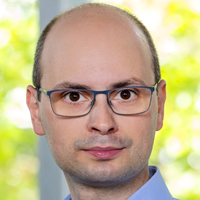 Dimitris Tsiantoulas completed his PhD studies in Christoph Binder's group at CeMM Research Center
for Molecular Medicine and the Medical University of Vienna. After graduating, he worked as a
postdoctoral fellow, funded by the British Heart Foundation, in Ziad Mallat’s group at the University
of Cambridge. Since 2019, Dimitris leads a research group at the Medical University of Vienna. His
research team studies the role of B cells in atherosclerosis, myocardial infarction and lipid metabolism.
In 2022, Dimitris has been awarded an ERC Starting grant to develop B cell-based innovative
immunotherapies for cardiovascular diseases.
Dimitris Tsiantoulas completed his PhD studies in Christoph Binder's group at CeMM Research Center
for Molecular Medicine and the Medical University of Vienna. After graduating, he worked as a
postdoctoral fellow, funded by the British Heart Foundation, in Ziad Mallat’s group at the University
of Cambridge. Since 2019, Dimitris leads a research group at the Medical University of Vienna. His
research team studies the role of B cells in atherosclerosis, myocardial infarction and lipid metabolism.
In 2022, Dimitris has been awarded an ERC Starting grant to develop B cell-based innovative
immunotherapies for cardiovascular diseases.
 Dimitris Tsiantoulas completed his PhD studies in Christoph Binder's group at CeMM Research Center
for Molecular Medicine and the Medical University of Vienna. After graduating, he worked as a
postdoctoral fellow, funded by the British Heart Foundation, in Ziad Mallat’s group at the University
of Cambridge. Since 2019, Dimitris leads a research group at the Medical University of Vienna. His
research team studies the role of B cells in atherosclerosis, myocardial infarction and lipid metabolism.
In 2022, Dimitris has been awarded an ERC Starting grant to develop B cell-based innovative
immunotherapies for cardiovascular diseases.
Dimitris Tsiantoulas completed his PhD studies in Christoph Binder's group at CeMM Research Center
for Molecular Medicine and the Medical University of Vienna. After graduating, he worked as a
postdoctoral fellow, funded by the British Heart Foundation, in Ziad Mallat’s group at the University
of Cambridge. Since 2019, Dimitris leads a research group at the Medical University of Vienna. His
research team studies the role of B cells in atherosclerosis, myocardial infarction and lipid metabolism.
In 2022, Dimitris has been awarded an ERC Starting grant to develop B cell-based innovative
immunotherapies for cardiovascular diseases.
 Holger Winkels is the Neven-DuMont Associate Professor for Experimental Cardiology of Ageing at the Department of Internal Medicine and Cardiology at the University of Cologne. He graduated with a M.Sc. in Biology at the RWTH Aachen, Germany, in 2011 and obtained his Ph.D. in Medical Science from the Ludwig-Maximilian-University Munich in 2017. Dr. Winkels joined Dr. Klaus Ley’s group at the La Jolla Institute for Immunology, San Diego, for a DFG-funded postdoctoral fellowship from 2016 to 2020 until he was recruited as PI to the University Hospital Cologne in 2020.
Holger Winkels is the Neven-DuMont Associate Professor for Experimental Cardiology of Ageing at the Department of Internal Medicine and Cardiology at the University of Cologne. He graduated with a M.Sc. in Biology at the RWTH Aachen, Germany, in 2011 and obtained his Ph.D. in Medical Science from the Ludwig-Maximilian-University Munich in 2017. Dr. Winkels joined Dr. Klaus Ley’s group at the La Jolla Institute for Immunology, San Diego, for a DFG-funded postdoctoral fellowship from 2016 to 2020 until he was recruited as PI to the University Hospital Cologne in 2020.
His deep interest in understanding adaptive and innate immune responses in cardiovascular disease spawned already early during his undergraduate studies. Dr. Winkels group uses cutting-edge single cell RNA sequencing approaches, spectral flow cytometry, and mouse models to uncover alterations in immune cell function and quantity in cardiovascular diseases and metabolic disorder. He published over 50 publications (H-Index 25) and received several grants (German Research Foundation) and awards including the Oskar Lapp Award from the German Society of Cardiology (DGK) in 2018. In 2019, Dr. Winkels chaired the Gordon Research Seminar in Atherosclerosis. He serves as advisory board member of the German Society for Atherosclerosis since 2021 and as special representative and speaker of the Young DGK section’s task force “Basic Science”
 Holger Winkels is the Neven-DuMont Associate Professor for Experimental Cardiology of Ageing at the Department of Internal Medicine and Cardiology at the University of Cologne. He graduated with a M.Sc. in Biology at the RWTH Aachen, Germany, in 2011 and obtained his Ph.D. in Medical Science from the Ludwig-Maximilian-University Munich in 2017. Dr. Winkels joined Dr. Klaus Ley’s group at the La Jolla Institute for Immunology, San Diego, for a DFG-funded postdoctoral fellowship from 2016 to 2020 until he was recruited as PI to the University Hospital Cologne in 2020.
Holger Winkels is the Neven-DuMont Associate Professor for Experimental Cardiology of Ageing at the Department of Internal Medicine and Cardiology at the University of Cologne. He graduated with a M.Sc. in Biology at the RWTH Aachen, Germany, in 2011 and obtained his Ph.D. in Medical Science from the Ludwig-Maximilian-University Munich in 2017. Dr. Winkels joined Dr. Klaus Ley’s group at the La Jolla Institute for Immunology, San Diego, for a DFG-funded postdoctoral fellowship from 2016 to 2020 until he was recruited as PI to the University Hospital Cologne in 2020.
His deep interest in understanding adaptive and innate immune responses in cardiovascular disease spawned already early during his undergraduate studies. Dr. Winkels group uses cutting-edge single cell RNA sequencing approaches, spectral flow cytometry, and mouse models to uncover alterations in immune cell function and quantity in cardiovascular diseases and metabolic disorder. He published over 50 publications (H-Index 25) and received several grants (German Research Foundation) and awards including the Oskar Lapp Award from the German Society of Cardiology (DGK) in 2018. In 2019, Dr. Winkels chaired the Gordon Research Seminar in Atherosclerosis. He serves as advisory board member of the German Society for Atherosclerosis since 2021 and as special representative and speaker of the Young DGK section’s task force “Basic Science”
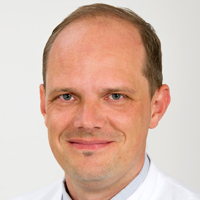 Dennis Wolf is an attending physician scientist and cardiologist at the University Heart Center Freiburg, Germany, and PI of the Vascular Immunology Laboratory. His early work was focused on inflammatory mechanisms in cardio-metabolic disease with a particular emphasis on the role of CD40L and its interaction partners in models of atherosclerosis, adipose tissue inflammation and immune cell trafficking. Dennis completed his postdoctoral training at the La Jolla Institute for Immunology, San Diego, USA. His current scientific work focusses on adaptive immune mechanisms in cardiovascular pathologies and comprises mouse and human studies with a focus on atherosclerosis, myocardial infarction, and metabolic disease in the context of adaptive and auto-immunity. His major contributions to the field include the first immune cell atlas of murine atherosclerosis generated by scRNA-seq and the discovery of antigen-specific lymphocytes in atherosclerosis. Currently, Dennis is working on translational aspects of cardiovascular auto-immunity and on developing an immunomodulatory vaccine to dampen pathogenic immunity against Apolipoprotein B.
Dennis Wolf is an attending physician scientist and cardiologist at the University Heart Center Freiburg, Germany, and PI of the Vascular Immunology Laboratory. His early work was focused on inflammatory mechanisms in cardio-metabolic disease with a particular emphasis on the role of CD40L and its interaction partners in models of atherosclerosis, adipose tissue inflammation and immune cell trafficking. Dennis completed his postdoctoral training at the La Jolla Institute for Immunology, San Diego, USA. His current scientific work focusses on adaptive immune mechanisms in cardiovascular pathologies and comprises mouse and human studies with a focus on atherosclerosis, myocardial infarction, and metabolic disease in the context of adaptive and auto-immunity. His major contributions to the field include the first immune cell atlas of murine atherosclerosis generated by scRNA-seq and the discovery of antigen-specific lymphocytes in atherosclerosis. Currently, Dennis is working on translational aspects of cardiovascular auto-immunity and on developing an immunomodulatory vaccine to dampen pathogenic immunity against Apolipoprotein B.
 Dennis Wolf is an attending physician scientist and cardiologist at the University Heart Center Freiburg, Germany, and PI of the Vascular Immunology Laboratory. His early work was focused on inflammatory mechanisms in cardio-metabolic disease with a particular emphasis on the role of CD40L and its interaction partners in models of atherosclerosis, adipose tissue inflammation and immune cell trafficking. Dennis completed his postdoctoral training at the La Jolla Institute for Immunology, San Diego, USA. His current scientific work focusses on adaptive immune mechanisms in cardiovascular pathologies and comprises mouse and human studies with a focus on atherosclerosis, myocardial infarction, and metabolic disease in the context of adaptive and auto-immunity. His major contributions to the field include the first immune cell atlas of murine atherosclerosis generated by scRNA-seq and the discovery of antigen-specific lymphocytes in atherosclerosis. Currently, Dennis is working on translational aspects of cardiovascular auto-immunity and on developing an immunomodulatory vaccine to dampen pathogenic immunity against Apolipoprotein B.
Dennis Wolf is an attending physician scientist and cardiologist at the University Heart Center Freiburg, Germany, and PI of the Vascular Immunology Laboratory. His early work was focused on inflammatory mechanisms in cardio-metabolic disease with a particular emphasis on the role of CD40L and its interaction partners in models of atherosclerosis, adipose tissue inflammation and immune cell trafficking. Dennis completed his postdoctoral training at the La Jolla Institute for Immunology, San Diego, USA. His current scientific work focusses on adaptive immune mechanisms in cardiovascular pathologies and comprises mouse and human studies with a focus on atherosclerosis, myocardial infarction, and metabolic disease in the context of adaptive and auto-immunity. His major contributions to the field include the first immune cell atlas of murine atherosclerosis generated by scRNA-seq and the discovery of antigen-specific lymphocytes in atherosclerosis. Currently, Dennis is working on translational aspects of cardiovascular auto-immunity and on developing an immunomodulatory vaccine to dampen pathogenic immunity against Apolipoprotein B.
 Following a master in Biology at the University of Wageningen, a PhD in skeletal muscle biomechanics at the Human Movement Sciences, Vrije Universiteit Amsterdam, and two post-docs at department of Physiology, Vrije Universiteit Amsterdam, directed at mitochondrial dysfunction in stunned myocardium, and at the Bioengineering dep University of Washington, Seattle, directed at cardiac models of oxygen transport, I started my own research group at the University of Amsterdam, department of Anesthesiology.
Following a master in Biology at the University of Wageningen, a PhD in skeletal muscle biomechanics at the Human Movement Sciences, Vrije Universiteit Amsterdam, and two post-docs at department of Physiology, Vrije Universiteit Amsterdam, directed at mitochondrial dysfunction in stunned myocardium, and at the Bioengineering dep University of Washington, Seattle, directed at cardiac models of oxygen transport, I started my own research group at the University of Amsterdam, department of Anesthesiology.
My laboratory’s long term research goals are to 1) elucidate the crucial cell injury mechanisms in the heart of ischemia-reperfusion injury (IRI), heart failure, stress hyperglycemia and diabetes, and 2) develop clinical relevant strategies to combat these cell injury mechanisms. Research involves ex vivo and in vivo cardiac models with emphasis on the interaction between cardiac ion homeostasis, metabolism, inflammation, immunity and cardiac function. Important contributions from our group to the field entail the elucidation of the role of 1) glycocalyx in vascular permeability in diabetes and hyperglycemia, 2) mitochondria-hexokinase binding in cardiac IRI, diabetes and ischemic preconditioning, 3) NLRP3 inflammasome in cardiac IRI, 4) direct cardiac effects of SGLT2 inhibitors, and 5) the mitochondrial innate immune receptor NLRX1 in mPTP regulation, cardiac metabolism and I/R injury.
 Following a master in Biology at the University of Wageningen, a PhD in skeletal muscle biomechanics at the Human Movement Sciences, Vrije Universiteit Amsterdam, and two post-docs at department of Physiology, Vrije Universiteit Amsterdam, directed at mitochondrial dysfunction in stunned myocardium, and at the Bioengineering dep University of Washington, Seattle, directed at cardiac models of oxygen transport, I started my own research group at the University of Amsterdam, department of Anesthesiology.
Following a master in Biology at the University of Wageningen, a PhD in skeletal muscle biomechanics at the Human Movement Sciences, Vrije Universiteit Amsterdam, and two post-docs at department of Physiology, Vrije Universiteit Amsterdam, directed at mitochondrial dysfunction in stunned myocardium, and at the Bioengineering dep University of Washington, Seattle, directed at cardiac models of oxygen transport, I started my own research group at the University of Amsterdam, department of Anesthesiology.
My laboratory’s long term research goals are to 1) elucidate the crucial cell injury mechanisms in the heart of ischemia-reperfusion injury (IRI), heart failure, stress hyperglycemia and diabetes, and 2) develop clinical relevant strategies to combat these cell injury mechanisms. Research involves ex vivo and in vivo cardiac models with emphasis on the interaction between cardiac ion homeostasis, metabolism, inflammation, immunity and cardiac function. Important contributions from our group to the field entail the elucidation of the role of 1) glycocalyx in vascular permeability in diabetes and hyperglycemia, 2) mitochondria-hexokinase binding in cardiac IRI, diabetes and ischemic preconditioning, 3) NLRP3 inflammasome in cardiac IRI, 4) direct cardiac effects of SGLT2 inhibitors, and 5) the mitochondrial innate immune receptor NLRX1 in mPTP regulation, cardiac metabolism and I/R injury.